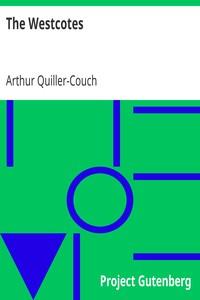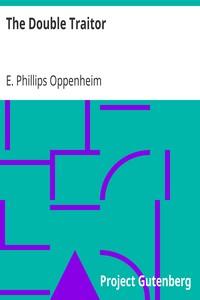|
|
Read this ebook for free! No credit card needed, absolutely nothing to pay.Words: 38818 in 19 pages
This is an ebook sharing website. You can read the uploaded ebooks for free here. No credit cards needed, nothing to pay. If you want to own a digital copy of the ebook, or want to read offline with your favorite ebook-reader, then you can choose to buy and download the ebook.

: The Westcotes by Quiller Couch Arthur - England Social life and customs 19th century Fiction; Single women Fiction; Man-woman relationships Fiction; Napoleonic Wars 1800-1815 Prisoners and prisons British Fiction@FreeBooksTue 06 Jun, 2023 THE WESTCOTES OF BAYFIELD A mural tablet in Axcester Parish Church describes Endymion Westcote as "a conspicuous example of that noblest work of God, the English Country Gentleman." Certainly he was a typical one. In almost every district of England you will find a family which, without distinguishing itself in any particular way, has held fast to the comforts of life and the respect of its neighbours for generation after generation. Its men have never shone in court, camp, or senate; they prefer tenacity to enterprise, look askance upon wit , and are even a little suspicious of eminence. On the other hand they make excellent magistrates, maintain a code of manners most salutary for the poor in whose midst they live and are looked up to; are as a rule satisfied, like the old Athenian, if they leave to their heirs not less but a little more than they themselves inherited, and deserve, as they claim, to be called the backbone of Great Britain. Many of the women have beauty, still more have an elegance which may pass for it, and almost all are pure in thought, truthful, assiduous in deeds of charity, and marry for love of those manly qualities which they have already esteemed in their brothers. Such a family were the Westcotes of Bayfield, or Bagvil, in 1810. Their "founder" had settled in Axcester towards the middle of the seventeenth century, and prospered--mainly, it was said, by usury. A little before his death, which befel in 1668, he purchased Bayfield House from a decayed Royalist who had lost his only son in the Civil Wars; and to Bayfield and the ancestral business his descendants continued faithful. One or both of the two brothers who, with their half-sister, represented the family in 1810, rode in on every week-day to their Bank-office in Axcester High Street,--a Georgian house of brick, adorned with a porch of plaster fluted to the shape of a sea-shell, out of which a. Cupid smiled down upon a brass plate and the inscription "WESTCOTE AND WESTCOTE," and on the first floor, with windows as tall as the rooms, so that from the street you could see through one the shapely legs of Mr. Endymion Westcote at his knee-hole table, and through another the legs of Mr. Narcissus. The third and midmost window was a dummy, having been bricked up to avoid the window-tax imposed by Mr. Pitt--in whose statesmanship, however, the brothers had firmly believed. Their somewhat fantastic names were traditional in the Westcote pedigree and dated from, the seventeenth century. Endymion, the elder, , was the fine flower of the Westcote stocks, and, out of question, the most influential man in Axcester and for many a mile round justice of the Peace for the county of Somerset and Major of its Yeomanry, he served "our town," as Overseer of the Poor, Governor of the Grammar School, Chairman of Feoffees, Churchwarden, everything in short but Mayor--an office which he left to the tradesmen, while taking care to speak of it always with respect, and indeed to see it properly filled. The part of County Magistrate--to which he had been born--he played to perfection, and with a full sense of its dignified amenity. His favourite character, however, was that of plain citizen of his native town. "I'm an Axcester man," he would declare in his public speeches, and in his own way he loved and served the little borough. For its good he held its Parliamentary representation in the hollow of his hand; and, as Overseer of the Poor, had dared public displeasure by revising the Voters' List and defying a mandamus of the Court of King's Bench rather than allow Axcester to fail in its duty of returning two members to support Mr. Percevall's Ministry. In 1800, when the price of wheat rose to 184s a quarter, a poor woman dropped dead in the market place of starvation. At once a mob collected, hoisted a quartern-loaf on a pole with the label--"We will have Bread or Blood," and started to pillage the shop's in High Street. It was Endymion Westcote who rode up single-handed, and faced and dispersed the rioters. It was he who headed the subscription list, prevailed on the purchase a wagon-load of potatoes and persuaded the people to plant them--for even the seed potatoes had been eaten, and the gardens lay undigged. It was he who met the immediate famine by importing large quantities of rice. Finally, it was he, through his influence with the county, who brought back prosperity by getting the French prisoners sent to Axcester. We shall talk of these French prisoners by and by. To conclude this portrait of Endymion Westcote. He was a handsome, fresh-complexioned man, over six feet in height, and past his forty-fifth year; a bachelor and a Protestant. In his youth he had been noted for gallantry, and preserved some traces of it in his address. His grandfather had married a French lady, and although this union had not sensibly diluted the Westcote blood, Endymion would refer to it to palliate a youthful taste for playing the fiddle. He spoke French fluently, with a British accent which, when appointed Commissary, he took pains to improve by conversation with the prisoners, and was fond of discussing heredity with the two most distinguished of them--the Vicomte de Tocqueville and General Rochambeau. Oddly enough, the gossips who still arranged marriages for the brothers had given over speculating upon their hostess, Miss Dorothea. She could not, of course, perpetuate the name; but this by no means accounted for all the difference in their concern. Dorothea Westcote was now thirty- seven, or five years younger than Narcissus, whose mother had died soon after his birth. The widower had created one of the few scandals in the Westcote history by espousing, some four years later, a young woman of quite inferior class, the daughter of a wholesale glover in Axcester. The new wife had good looks, but they did not procure her pardon; and she made the amplest and speediest amends by dying within twelve months, and leaving a daughter who in no way resembled her. The husband survived her just a dozen years. Dorothea, the daughter, was a plain girl; her brothers, though kind and fond of her after a fashion, did not teach her to forget it. She loved them, but her love partook of awe: they were so much cleverer, as well as handsomer, than she. Having no mother or friend of her own sex to imitate, she grow into an awkward woman, sensitive to charm in others and responding to it without jealousy, but ignorant of what it meant or how it could be acquired. She picked up some French from her brother Endymion, and masters were hired who taught her to dance, to paint in water colours, and to play with moderate skill upon the harp. But few partners had ever sought her in the ballroom; her only drawings which anyone ever asked to see were half-a-dozen of the Bayfield pavement, executed for Narcissus' monograph; and her harp she played in her own room. Now and then Endymion would enquire how she progressed with her music, would listen to her report and observe: "Ah, I used to do a little fiddling myself." But he never put her proficiency to the test. Axcester lies on the western side and mostly at the foot of a low hill set accurately in the centre of a ring of hills slightly higher-the raised bottom of a saucer would be no bad simile. The old Roman road cuts straight across this rise, descends between the shops of the High Street, passes the church, crosses the Axe by a narrow bridge, and climbing again passes the iron gates of Bayfield House, a mile above the river. So straight is it that Dorothea could keep her brothers in view from the gates until they dismounted before their office door, losing sight of them for a minute or two only among the elms by the bridge. Her boudoir window commanded the same prospect; and every day as the London coach topped the hill, her maid Polly would run with news of it. The two would be watching, often before the guard's horn awoke the street and fetched the ostlers out in a hurry from the "Dogs Inn" stables with their relay of four horses. Miss Dorothea possessed a telescope, too; and if the coach were dressed with laurels and flags announcing a victory, mistress and maid would run to the gates and wave their handkerchiefs as it passed. She said nothing about it, and soon after breakfast the board was removed. THE ORANGE ROOM Some weeks later, on a bright and frosty morning in December, Dorothea rode into Axcester with her brothers. She was a good horsewoman and showed to advantage on horseback, when her slight figure took a grace of movement which made amends for her face. To-day the brisk air and a canter across the bridge at the foot of the hill had brought roses to her cheeks, and she looked almost pretty. General Rochambeau happened to pass down the street as the three drew rein before the Town House , and, pausing to help her dismount, paid her a very handsome compliment. Free books android app tbrJar TBR JAR Read Free books online gutenberg More posts by @FreeBooks
: The Double Traitor by Oppenheim E Phillips Edward Phillips - Spy stories@FreeBooksTue 06 Jun, 2023

: Beacon Lights of History Volume 07: Great Women by Lord John - History Children's History@FreeBooksTue 06 Jun, 2023
|
Terms of Use Stock Market News! © gutenberg.org.in2025 All Rights reserved.






